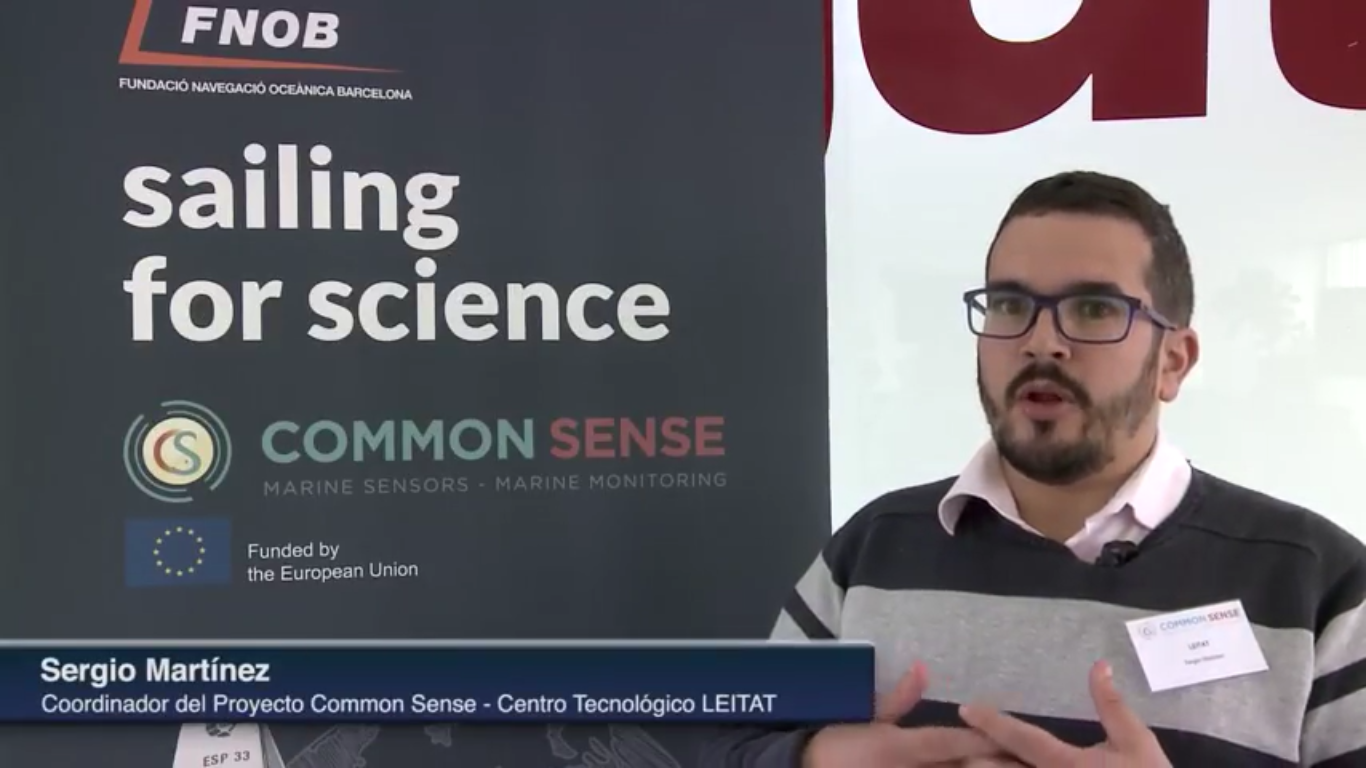Sailing for Science: around the world with next-gen sensors for marine monitoring
The COMMON SENSE project developed next generation sensors to know more about what occurs in the bowels of our oceans that are seriously threatened. On board of the One Planet One Ocean boat, Didac Costa tested a prototype around the world. His experience is very valuable for the development of the project on ocean racing yachts.
The COMMON SENSE project, coordinated by LEITAT, aimed to develop low cost sensors to be integrated/installed in a variety of vessels and platforms in order to obtain real time data.
On January 27, the 15 companies and institutions that collaborated in the project presented at the headquarters of the FNOB their conclusions of their research activities. During 40 months, partners worked hard to present their the final devices in Barcelona.
The project’s main challenge is to achieve low-cost sensors that allow automation of measurement operations and real-time data comparison on an easily accessible platform. This minimizes the costs of installation, personal operation and data processing, which allows the sensors to adapt to a wide range of vessels and platforms.
What do the COMMON SENSE sensors measure?
The sensors measure eutrophication (nutrient enrichment of an ecosystem), concentration of heavy metals and microplastics, noise pollution and other parameters such as temperature and pressure . All these data are very valuable to know more about what is happening in the ocean and to design solutions to take care of this fundamental element for life on Earth. The ocean is an authentic vital organ that, beyond accumulating a huge range of forms of life essential for us, behave like a second great lung of the planet to absorb much of the CO2 we emit.
Didac Costa recently participated in the Vendée Globe carrying the microplastic sensor onboard. As stated by Sergio MartÃnez, coordinator of the COMMON SENSE project, “The work that Didac Costa is doing shows us that sensors can resist extreme conditions.”
The experience with the COMMON SENSE sensor confirms the achievement of several of the objectives of the project. The device is easy to install and maintain, and it does not need any inputs from the skipper.
The COMMON SENSE project is coordinated by LEITAT and includes a consortium of 15 partners from seven different countries, offering a wide knowledge and technical knowledge in the area of ​​marine monitoring. In addition to the FNOB are Aquatt UETP Ltd (Ireland), the State Agency for Scientific Research – CSIC (Spain), Consiglio Nazionale Delle Ricerche – CNR (Italy), Dropsens S.L. (Spain), Dublin City University (Ireland), Cyril And Methodius University In Skopje (Former Yugoslav Republic of Macedonia), Idronaut (Italy), Instytut Oceanologii Polskiej Akademii Nauk – IO PAN (Poland) National University of Ireland, Simulacions Optiques Sl – SNELLOPTICS (Spain), Subctech Gmbh (Germany), TE Laboratories Limited (Ireland) and Secretary of State for Environment, Food and Rural Affairs – CEFAS (United Kingdom).
Source: FNOB.org


You helped me a lot with this post. I love the subject and I hope you continue to write excellent articles like this.
Your articles are very helpful to me. May I request more information?
I’d like to find out more? I’d love to find out more details.
You helped me a lot by posting this article and I love what I’m learning.
Thanks for your help and for writing this post. It’s been great.
Your articles are extremely helpful to me. May I ask for more information?
At last after you have seen the rest you just found the best.